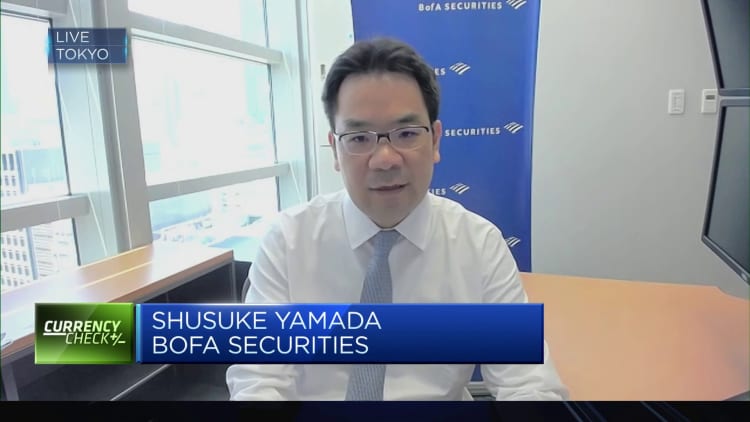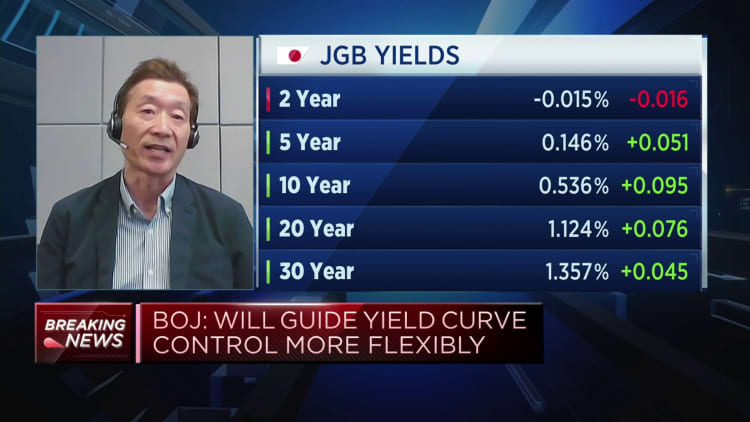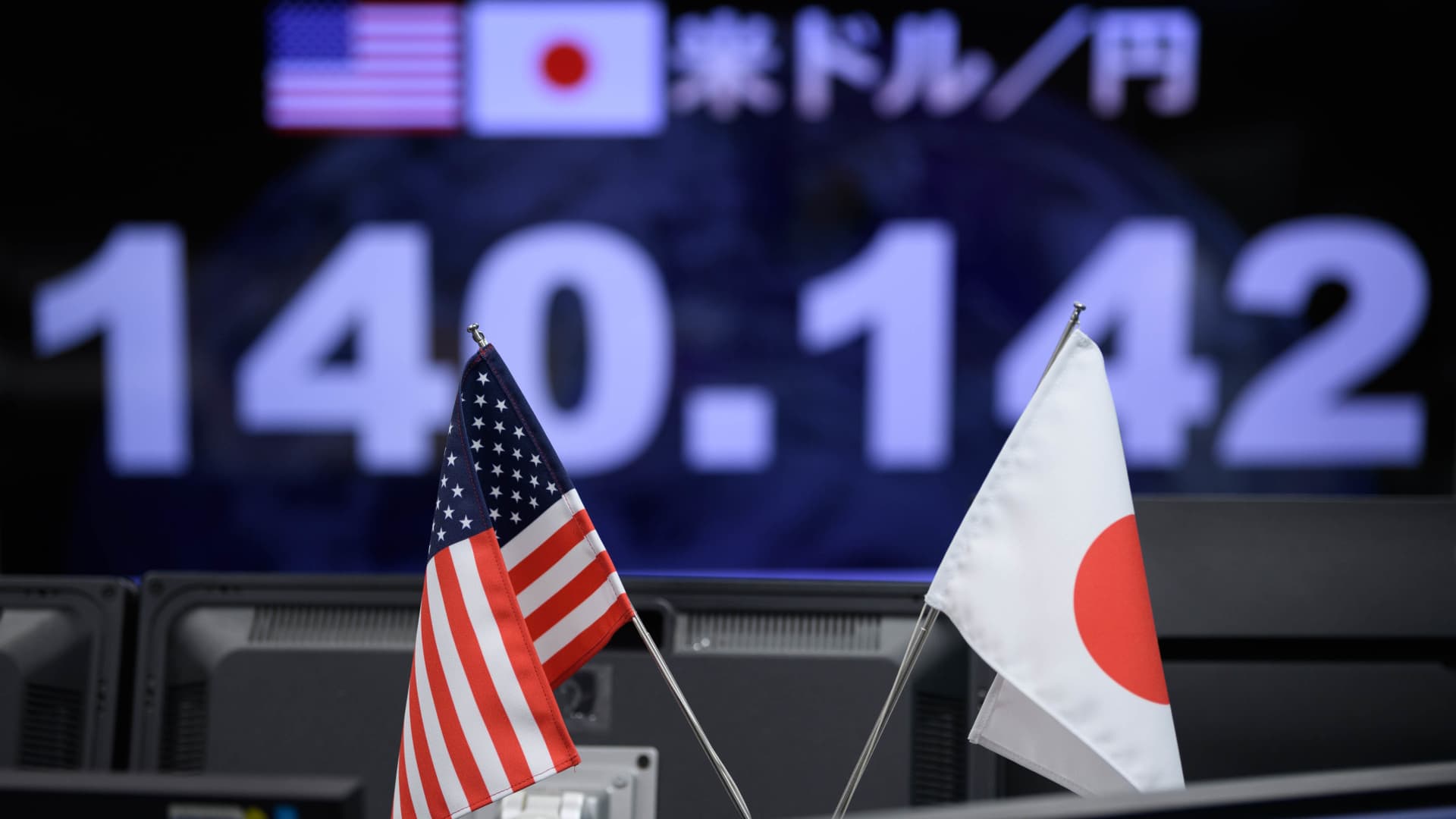Japan needs to transition sooner to a “new normal” as the country’s current ultra low interest rate policy regime has been “inappropriate” and “very harmful” for the economy, according to a strategist.
Central banks around the world have raised rates aggressively to rein in inflation, but Japan has kept its benchmark rate at -0.1% since 2016.
The sooner the BOJ moves to a “more normal structure and let bond markets, equity markets do their work that they need to do,” the better it will be for financial markets, Kevin Hebner, global investment strategist at TD Epoch, told CNBC’s “Squawk Box Asia” on Monday.
On Friday, the Bank of Japan kept its ultra low interest rates unchanged but shocked financial markets by loosening its yield curve control — or YCC. The central bank said it would offer to buy 10-year Japanese government bonds at 1.0% in fixed-rate operations, instead of the previous rate of 0.5%. This effectively expands its tolerance by a further 50 basis points, signaling the BOJ would let the 10-year yield rise to as much as 1.0%.
“The type of policy they’ve had in place for a while now, it made sense in the mid 90s, late 90s,” Hebner said.
“It’s been an inappropriate policy for the last 20 years. Japan hasn’t had the same cyclical issues,” he noted. “And when you have zero interest rates, it creates all sorts of distortions and dislocations that I think are very harmful.”
Moving away from negative interest rates would have far-reaching effects on the Japanese economy, from corporate investment to household savings.
“Most importantly for equity investors the cost of capital is no longer zero,” noted Hebner.
“If you want to have companies creating value for the medium and longer term, you need the cost of capital to be realistic, and that hasn’t been the case for 20 years.”
‘New normal’
Hebner said Governor Kazuo Ueda “certainly knows” that Japan needs to normalize its policy, “but he also knows the transition has to be reasonably slow to give households and corporates time to adjust to the new normal.”
The BOJ chief played down the move to loosen the yield curve control at a news conference on Friday,
When asked if the central bank had shifted from dovish to neutral, he said: “That’s not the case. By making YCC more flexible, we enhanced the sustainability of our policy. So, this was a step to heighten the chance of sustainably achieving our price target,” according to a Reuters translation.

Hebner said, “I think when we move to the new normal, there is a signal that longer term JGB yields are going to be significantly higher — not just 58 basis points, but say 125 to 150 basis points.”
He added the yen is significantly undervalued against the dollar.
“If we do get these changes from the BOJ — there’s every reason to believe we’re in this transition process — I think, 125 is reasonable estimate for an equilibrium over the next one to two years,” said Hebner.
The yen was last roughly 0.3% higher at 140.77 against the dollar on Monday, while Japanese 10-year yields climbed further to 0.6%, during the Asian trading session.
Uncertainty looms
It is not clear at this stage “how the 10-year yield will move under the new ceiling of 1.0% and how strongly the BOJ will intervene in the market to enhance appropriate yield formation based on economic fundamentals,” Shigeto Nagai, head of Japan economics at Oxford Economics, wrote in a Friday note.
Despite Friday’s surprise tweak to YCC policy, “we continue to believe that Governor Ueda is determined to avoid premature tightening,” he added, and will take time “to carefully assess whether the economy is on track to achieve 2% inflation within his five-year term.”

With inflation above the BOJ’s 2% target, concerns are rising that Japan’s monetary policy has made the yen less attractive and vulnerable to selling.
There are signs that things are improving in Japan, but “it is important to be skeptical,” said Hebner.
“There’s a lot of room for this market to move up significantly and a lot of sectors for Japanese companies to create a lot of value — to be very innovative and have the innovations, particularly in tech,” he noted.
“But it still is very early days and it is natural for investors to be hopeful and get over their skis and this has happened quite a few times before.”

